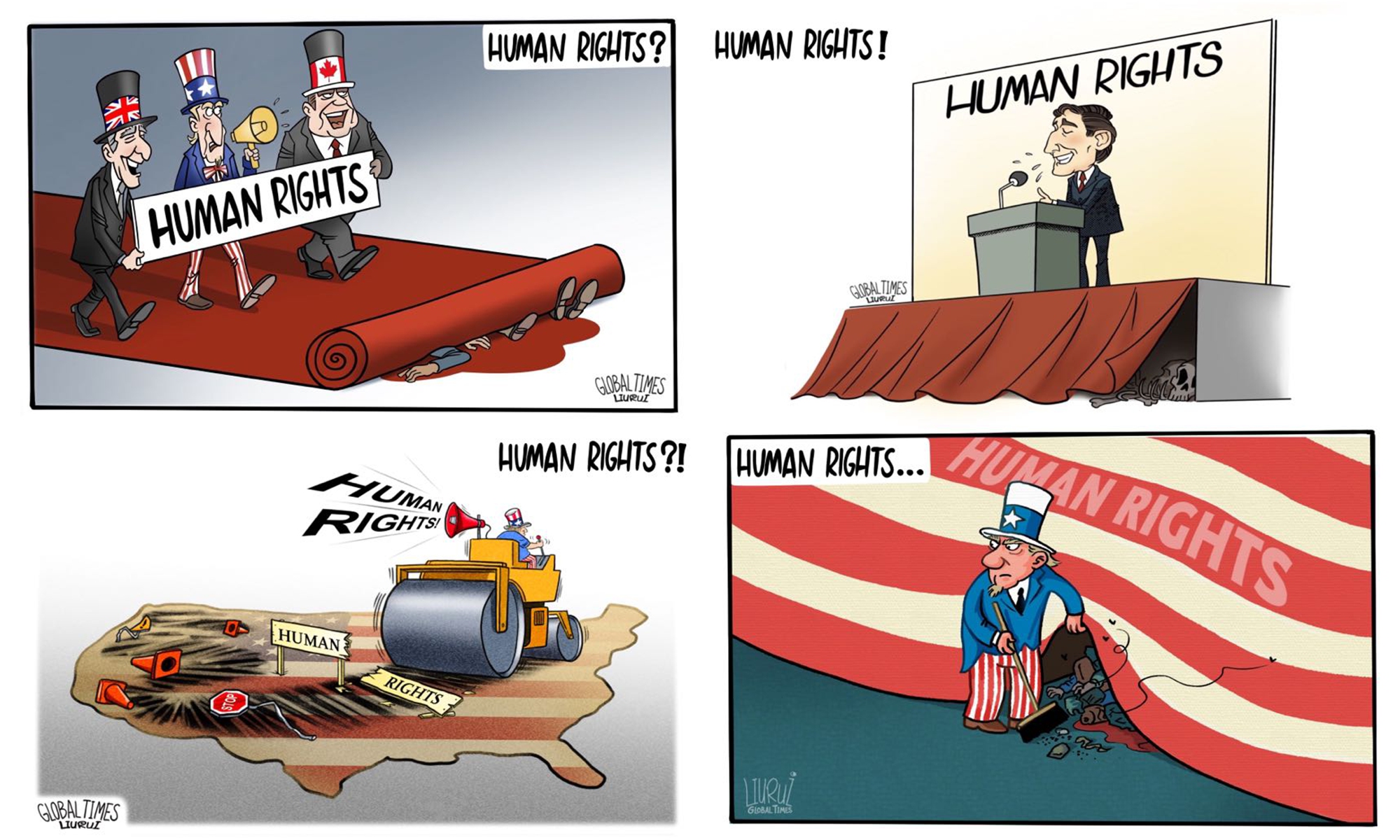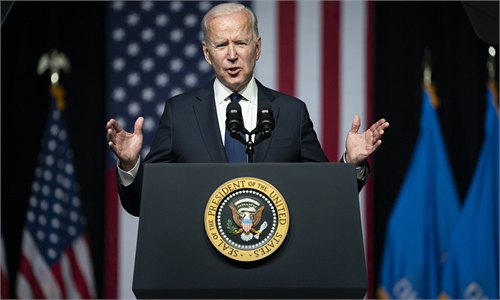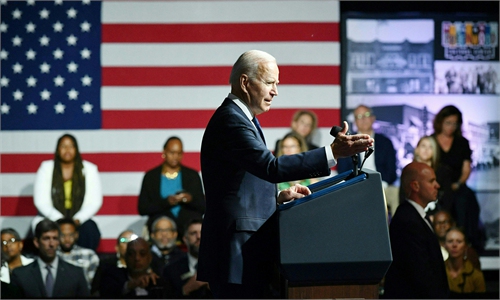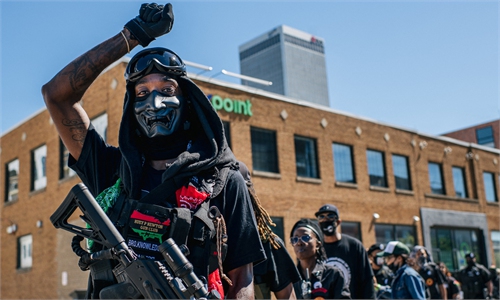
Human rights?! Illustration: Liu Rui/GT
In 1868, the 14th Amendment to the U.S. Constitution was adopted, which entitled all American citizens, regardless their color or race, the right of life, liberty, or property and equal protection under due process of law. More than half a century forward to 1921, however, many successful African-American entrepreneurs and businessmen in the southern city of Tulsa -- which they saw as a safe haven in the post-emancipation era -- suffered the nation's worst acts of race massacre. Mobs of White residents attacked and killed their Black neighbors and burnt down the wealthiest Black communities.A grand jury was impaneled soon after, a seemingly fair procedure. However, despite the abundant, clear and solid evidence suggesting the crime against the Black residents, the all-White jury unbelievably attributed the riot to the "Black mobs", and no White people were found guilty of all charges for the deaths, injuries or property damage ever since. No protection was applied to the African-Americans at all, let alone EQUAL protection as the Whites enjoyed.
The equal protection for African-American trumpeted in the 14th Amendment has been a mirage. From the first day of its enactment, it was bitterly contested by the southern States and caused more constitutional litigations than others, only because it intended to endow Black people with the same social status as their former masters. It kept rivaling with the disgraceful Black Codes in many southern States and gradually conceded to the pathetic introduction of the Jim Crow laws and the prevalence of the "separate but equal" fallacy through the 1950s.
Another half a century has passed since the Civil Rights Act of 1964 came into force. But, alas, the devastated Black communities in Tulsa have not seen any improvement with their judicial rights. The lawsuit filed against the city of Tulsa and the state of Oklahoma in 2003 was simply dismissed by the federal district and appellate courts on the grounds of exceeded limitations; the Supreme Court of the United States declined to hear the appeal. The courts were playing the game of procedure again. Meanwhile, they ignored the fact that the Tulsa Massacre was wiped off from the local history for several decades in an organized and intentional way, and that publicizing the facts would incur threats and pressure from the local White extremists.
The reason for repeated denial of judicial protection towards the Tulsa Black victims lies in the mentality governing the American judicial system. In this system, the meaning of "equality" always needs interpretation. When Thomas Jefferson penned "all men are created equal" in the Declaration of Independence, had he ever thought of the black slaves in his plantation? Maybe not, since the slaves were treated in non-human ways. Does the word "men" include all the races in America such as Native Americans, Asians, Latinos, or Muslims? Judging from the brutal history of racism in the U.S., the answer is a definite no. For the congressmen who drafted the Declaration, most of whom slave-owners, the divine word of EQUALITY was just a kind of political recognition exclusive to Anglo-Saxons.
The white supremacy mindset is entrenched in U.S. political institutions, say legislature, judicature, law enforcement and administration. That's why most bills aiming at empowering people of color encounter hindrance in the House and Senate. That's why minorities are prone to be indicted in controversial offenses but find it increasingly difficult to defend their legal rights. That's why more non-White Americans fall victim to police brutality and end up in jails. That's why the people have been fighting for their civil rights for centuries, yet the U.S. society today still witnesses extensive violation of human rights against these groups.
"I am 107-years-old and I have never seen justice. I pray that one day I will", said Viola Fletcher, the oldest Tulsa survivor. Too long have they waited for justice. But it may never arrive until the U.S. eliminates white supremacy from its system, institutions, and culture.
The author is a current affairs commentator. opinion@globaltimes.com.cn



